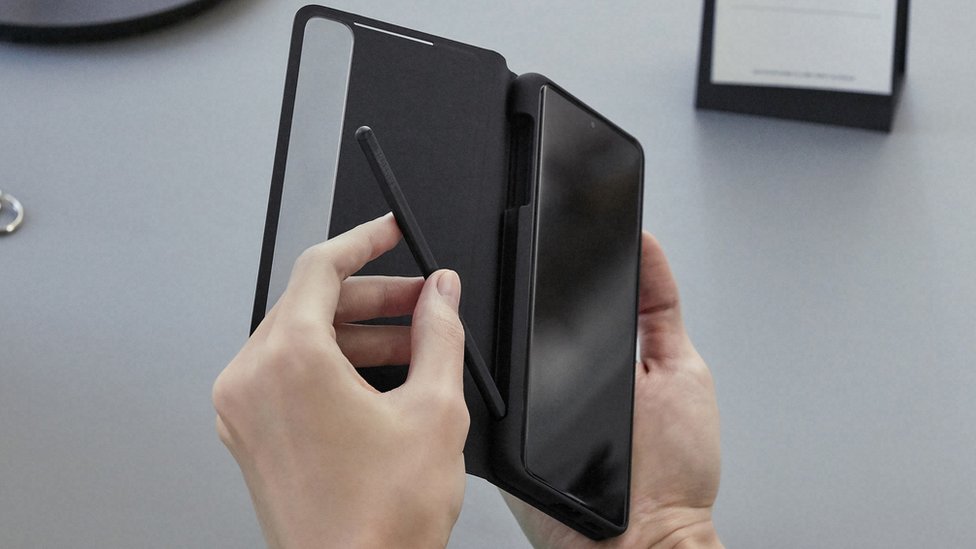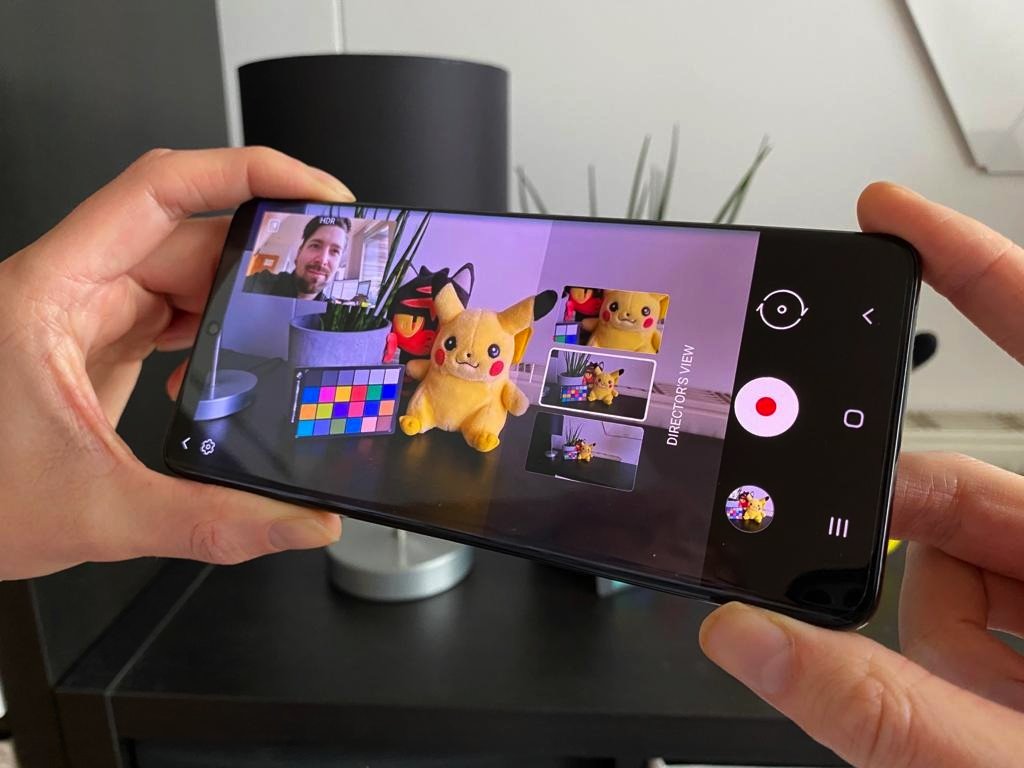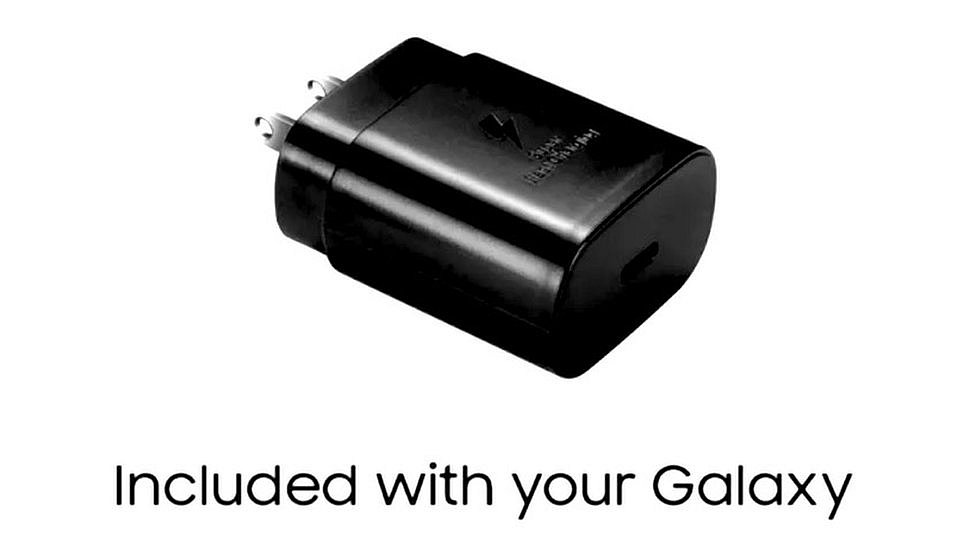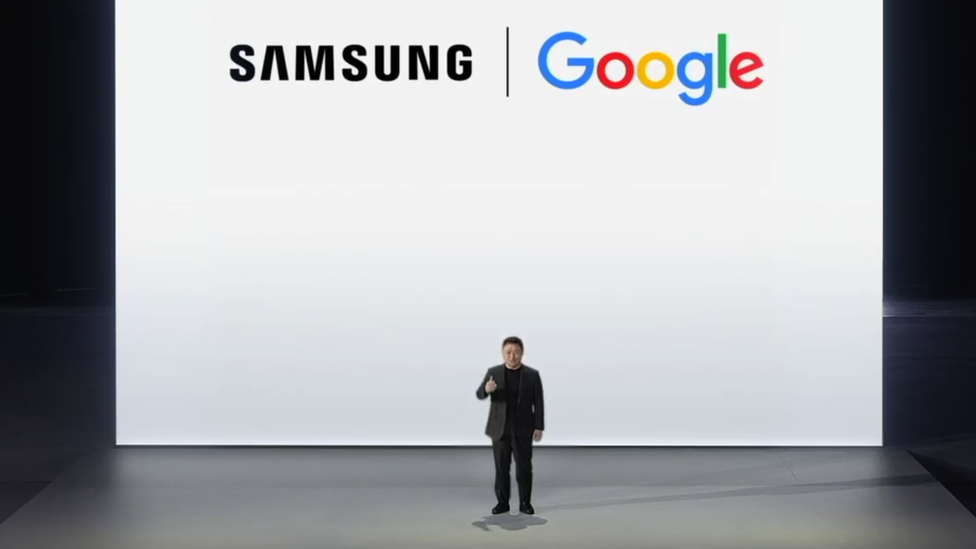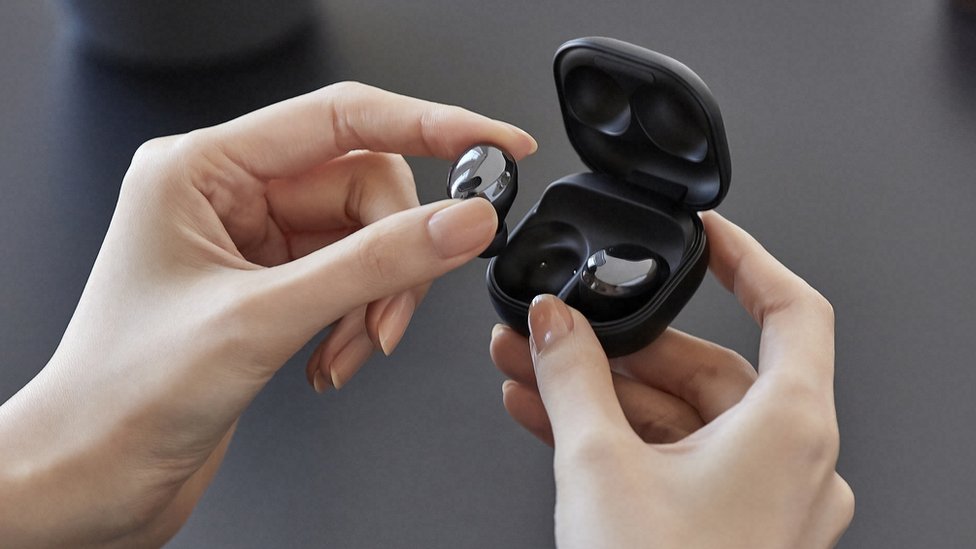Samsung's new flagship Galaxy S smartphone works with its stylus for the first time.
The S Pen is an optional add-on for the Galaxy S21 Ultra. But the move will fuel speculation the firm will phase out its separate Note handset range.
Samsung told the BBC it had yet to make a decision about this.
The company's handset sales have declined more quickly than the wider market. One expert said a streamlined line-up might help address this.
"There's increasing logic for Samsung to converge the Galaxy S and Note platforms, because there's so little differentiation between the two kinds of devices now," said Ben Wood, from the CCS Insight consultancy.
"That would align them with Apple, which also has one big phone launch event a year.
"My concern is that every time Samsung has announced its Note products in the past, it has planted a seed in consumers' minds that the Galaxy S products have become kind of the old ones."
The benefit of having a stylus is that it is easier to write, draw or annotate notes than using a finger. But to work it requires special hardware under the glass of the phone's display to pass power to the stylus and to track its tip.

'Expanded Note experience'
The Android-based Galaxy S21 Ultra has a 6.8in (17.3cm) display, which is only slightly smaller than the top-end 6.9in Note.
In years past, the Note phones were known as "phablets", and their size was the other key distinguishing factor with the S range.
Product manager Mark Notton said "we haven't decided", when asked whether Samsung planned to continue the Note family.
"It does not mean that Samsung is not committed to the Note category, but is expanding the Note experience across device categories," the firm said in a follow-up statement.
"We will actively listen to consumers' feedback and reflect it in our continued product innovation."
The S21 Ultra will start at £1,149 when it goes on sale on 29 January. The S Pen costs an extra £35 on its own, or £85 when bundled with a case that stores it.
That puts it in the ballpark of the Galaxy Note 20 Ultra's £1,179 starting price, which comes with a stylus that slots into its body.
Ditched charger
There are also two other lower-cost models in the new range, neither of which works with the S-Pen stylus: the 6.2in S21 and 6.7in S21+.
All three models feature a redesigned camera module on their back.
But while the two lower-end models have three lenses - ultra-wide, wide and 3x-zoom telephoto - the S21 Ultra adds a further 10x-zoom telephoto lens, letting owners shoot action from even further away.
The handsets also benefit from a new Director's View facility. It lets users film video while getting thumbnail previews superimposed on-screen of what it would look like if they switched to another lens.
All three phones can film in 8K - double the maximum resolution of the competing iPhone 12 range's native video app.
Other benefits over Apple's latest phones include:
- screens that can display up to 120 frames per second, to provide smoother visual effects
- wi-fi 6E wireless connectivity, allowing use of extra radio bandwith with a compatible router
- brighter screens - the S21 Ultra goes up to 1,500 nits, which should improve playback of HDR (high dynamic range) video
However, the handsets may be more notable for following Apple in two regards.
They have abandoned a slot for a microSD memory card.
And they will be sold without either a charger - a decision over which Samsung had mocked its rival. - or earphones.
"We discovered that more and more Galaxy users are reusing accessories they already have," the firm said.
Early launch
Samsung typically unveils its Galaxy range in late February, but has brought forward this year's launch to coincide with the CES tech show.
"Samsung needs S21 to be a success given that S20 was launched in the middle of Covid first wave in Europe and didn't gain many fans," commented Marta Pinto, from research firm IDC.
She added the earlier launch date could help it compete in the "premium market" with Apple, whose iPhones were released later than normal last year.
The South Korean firm should also benefit from collapsing sales of Huawei's devices in the West, caused by US sanctions that prevent them offering the Google Play store and some of the search giant's other services.
But Mr Wood said Samsung was facing growing competition from other Chinese brands including Xiaomi, Oppo and Vivo.
"Samsung's differentiator is going to be its ability to market its strong brand, and the fact it has a very wide product portfolio," he commented.
Smarter earbuds
Samsung also aims to widen its appeal with two further accessories.
It has a new pair of £219 wireless earbuds that monitor what the user is doing.
If they detect the wearer is talking, they automatically turn down the volume of music and amplify the sounds of the nearby environment picked up by their microphones, allowing the owner to have a brief conversation without needing to take them out or manually adjust their settings.
Samsung also is launching the £30 Galaxy SmartTag - a Bluetooth-enabled tracker that can be attached to belongings or pets.
It will allow an app to show their location, so long as the tag is in range of the owner or anyone else's compatible Samsung device.
The tracker will compete with similar products from the current market leader Tile.
